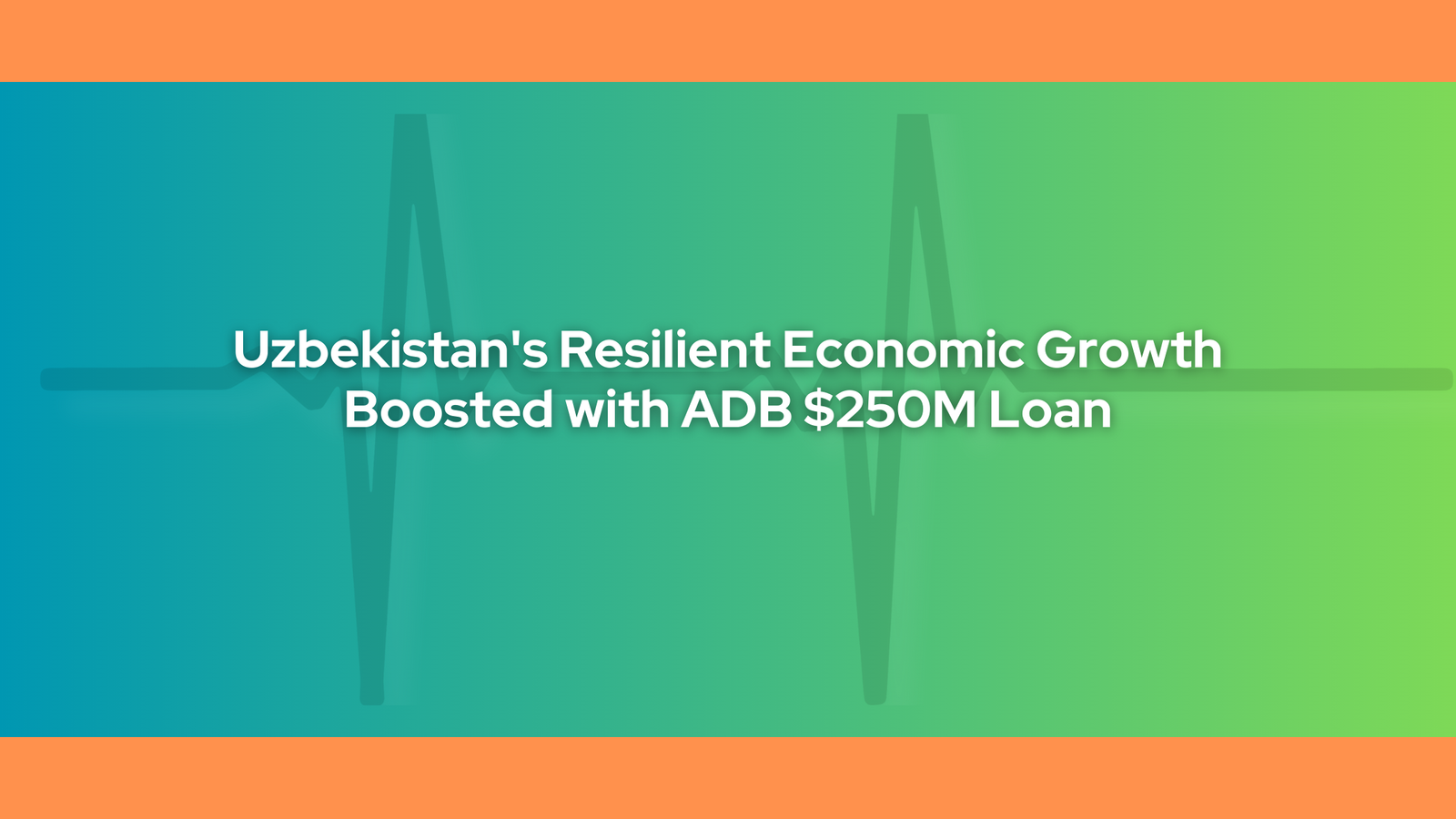
In Central Asia, average temperatures are increasing faster than the global average. This is affecting their water resources and stressing their agricultural resources. Climate change and poor resource management are increasing strain on Uzbekistan’s economy, which mostly depends on agriculture and natural resources. Hence, there is a need for a major step in advancing resilience and sustainability to lay the foundation for Uzbekistan’s resilient economic growth.
The Asian Development Bank (ADB) authorized a $250 million loan in November to help Uzbekistan’s resilient economic growth. By addressing pressing issues like water scarcity, energy inefficiencies, and climate vulnerabilities, this financing will set the groundwork for the nation’s green, inclusive development.
This loan aims to accelerate climate change mitigation efforts, improving the connections and interactions between climate change adaptation priorities. At the same time, it would be fortifying institutional frameworks for climate transition.

Climate change impacts like rising temperatures, intensifying droughts, and erratic rainfall patterns affect the region’s population and economic stability. Uzbekistan is one of the most vulnerable countries to these consequences. According to the ADB Climate Risk Country Profile, Uzbekistan ranked 83rd out of 182 countries in the 2020 ND-GAIN Index16.
Uzbekistan is vulnerable to the effects of climate change due to political, geographic, and social factors. The ND-GAIN Index assigns a score that determines a nation’s readiness to increase resilience as well as its vulnerability to climate change and other global challenges.
With this, the proposed Accelerating the Climate Transition Program can support Uzbekistan’s resilient and green growth. This initiative, which is Central Asia’s first planned climate intervention, will help the government improve climate resilience in agriculture, social protection, and the management of water and land resources, bolster public financial management and institutions, and accelerate the shift to a low-carbon economy in industries like energy and transportation.

Yevgeniy Zhukov, the ADB Director General for Central and West Asia, said that the initiative supports disadvantaged populations while emphasizing decarbonization of the economy and resilience to disasters and climate change. “Uzbekistan is among the most energy-intensive economies globally, so the program will support the government’s efforts to reduce greenhouse gas emissions per unit of gross domestic product by 35% by 2030. The reductions will be pursued by promoting renewable energy and improving energy efficiency,” Zhukov added.
The World Bank’s Innovative Carbon Resource Application for Energy Transformation Project, or iCRAFT, also provided support to Uzbekistan to aid in its green transformation. The initiative awards the nation for each metric ton of carbon it reduces through energy saving. For reducing half a million tons of carbon emissions, the country was awarded $7.5 million in carbon credits in June 2024.
Uzbekistan’s water supply is still a major concern. The country sources only 20% of its water resources domestically; the remaining 80% comes from nearby nations. The water shortage may quadruple by 2050 and reach 7 billion cubic meters by 2030, according to an interview in The Times of Central Asia with eco-journalist Kosimova.
ADB Country Director for Uzbekistan Kanokpan Lao-Araya acknowledged that inefficient use and climate change seriously threaten the country’s water supplies. Lao-Araya added, “This program supports the enabling legislation for investments in irrigation modernization and climate-smart water management to safeguard water security and combat the accelerating desertification that endangers fragile ecosystems.”